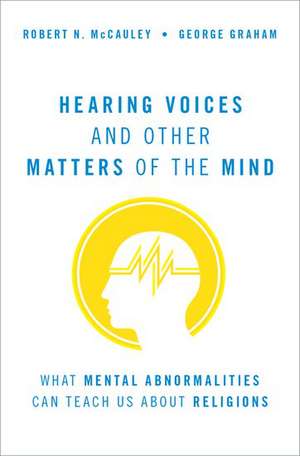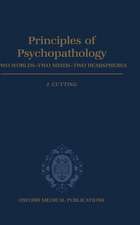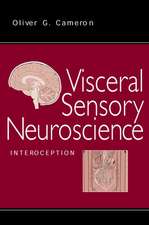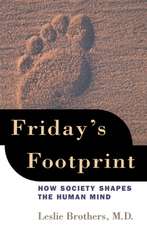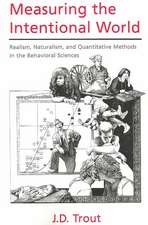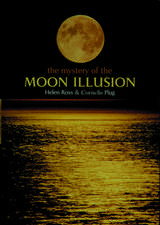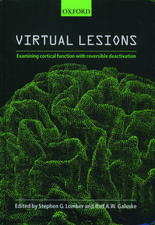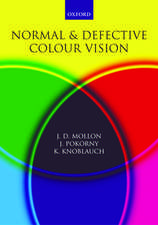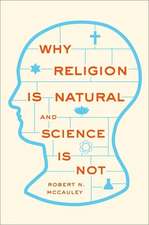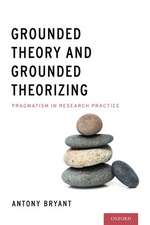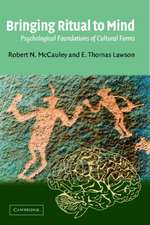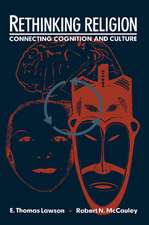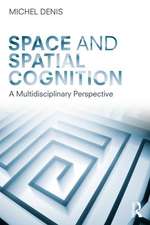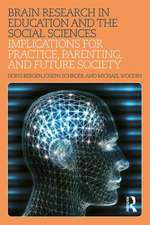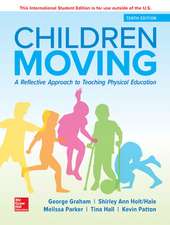Hearing Voices and Other Matters of the Mind: What Mental Abnormalities Can Teach Us About Religions
Autor Robert N. McCauley, George Grahamen Limba Engleză Hardback – 22 iun 2020
Preț: 221.56 lei
Nou
Puncte Express: 332
Preț estimativ în valută:
42.40€ • 44.10$ • 35.00£
42.40€ • 44.10$ • 35.00£
Carte disponibilă
Livrare economică 14-20 martie
Preluare comenzi: 021 569.72.76
Specificații
ISBN-13: 9780190091149
ISBN-10: 0190091142
Pagini: 280
Dimensiuni: 236 x 160 x 31 mm
Greutate: 0.52 kg
Editura: Oxford University Press
Colecția OUP USA
Locul publicării:New York, United States
ISBN-10: 0190091142
Pagini: 280
Dimensiuni: 236 x 160 x 31 mm
Greutate: 0.52 kg
Editura: Oxford University Press
Colecția OUP USA
Locul publicării:New York, United States
Recenzii
Hearing Voices will be of great interest to those invested in the cognitive science of religion.
What do speaking in tongues, the dark night of the soul, and endless repetition ofritual share in common? McCauley and Graham's book has some tantalizing answers. This is a wonderful book filled with many insights about some of the great mysteries of religious thinking and experience.
This book shows that the study of religious experiences and mental disorders can and should inform each other. In the process it makes an eloquent plea for ecumenical naturalism, emphasizing the need to break down disciplinary silos while strengthening commitment to scientific methods. This should be a clarion call for all branches of the social and cognitive sciences. Hats off to McCauley and Graham for showing us how it can be done.
Studying what happens when the mind goes awry can give us insights concerning normal psychological functioning. McCauley and Graham apply this principle to religious thought and action to great effect. Well-studied and convincingly presented, Hearing Voices and Other Matters of the Mind is without peer in productively bringing psychopathology and the scientific study of religion together.
McCauley and Graham are leading figures in philosophy mind, philosophy of psychiatry, and the cognitive science of religion. Hearing Voices and Other Matters of the Mind is a deeply respectful, humane, and productive exploration of familiar existential states of mind — dark nights of the soul, expansive love, anxiety, fear and trembling, depression, transcendence, and hope — that are sources for spiritual impulses. A central focus is the fact that sometimes spiritual virtuosity seems like what from another perspective we might think are illusions and delusions, mental illness. What are we to make of this? This is a book of great wisdom and grace in the tradition of Soren Kierkegaard and William James. A book that really makes one think.
What do speaking in tongues, the dark night of the soul, and endless repetition ofritual share in common? McCauley and Graham's book has some tantalizing answers. This is a wonderful book filled with many insights about some of the great mysteries of religious thinking and experience.
This book shows that the study of religious experiences and mental disorders can and should inform each other. In the process it makes an eloquent plea for ecumenical naturalism, emphasizing the need to break down disciplinary silos while strengthening commitment to scientific methods. This should be a clarion call for all branches of the social and cognitive sciences. Hats off to McCauley and Graham for showing us how it can be done.
Studying what happens when the mind goes awry can give us insights concerning normal psychological functioning. McCauley and Graham apply this principle to religious thought and action to great effect. Well-studied and convincingly presented, Hearing Voices and Other Matters of the Mind is without peer in productively bringing psychopathology and the scientific study of religion together.
McCauley and Graham are leading figures in philosophy mind, philosophy of psychiatry, and the cognitive science of religion. Hearing Voices and Other Matters of the Mind is a deeply respectful, humane, and productive exploration of familiar existential states of mind — dark nights of the soul, expansive love, anxiety, fear and trembling, depression, transcendence, and hope — that are sources for spiritual impulses. A central focus is the fact that sometimes spiritual virtuosity seems like what from another perspective we might think are illusions and delusions, mental illness. What are we to make of this? This is a book of great wisdom and grace in the tradition of Soren Kierkegaard and William James. A book that really makes one think.
Notă biografică
Robert N. McCauley is William Rand Kenan Jr. University Professor of Philosophy at Emory University and the founding Director of Emory's Center for Mind, Brain, and Culture. He is the author of Why Religion Is Natural and Science Is Not and Philosophical Foundations of the Cognitive Science of Religion. He is also the co-author, with E. Thomas Lawson, of Rethinking Religion and Bringing Ritual to Mind. He has been elected president of both the Society for Philosophy and Psychology and the International Association for the Cognitive Science of Religion, and he will serve as a Gifford Lecturer at the University of Aberdeen in 2021. George Graham has held professorships in philosophy at Alabama-Birmingham, Georgia State, and Wake Forest, where he was A. C. Reid Professor of Philosophy. He has published more than a dozen books, including The Disordered Mind and The Abraham Dilemma: A Divine Delusion. He is also co-author, with G. Lynn Stephens, of When Self-Consciousness Breaks. He has served as President of the Society for Philosophy and Psychology, and received numerous awards for teaching and research awards from such institutions as The Rockefeller Foundation and The National Endowment for the Humanities.
